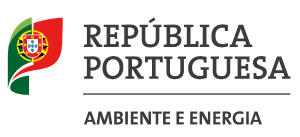Tabela de Conteúdos
About Us
Presentation
Following the Decree-Law 69/2018 of August 27, ENSE- Entidade Nacional para o Setor Energético (Nacional Entity for Energy Sector) was renamed from former ENMC – Entidade Nacional para o Mercado de Combustíveis, E.P.E. (National Authority for Fuel Market), keeping its specific skills as central stockholding entity in the constitution and maintenance of the strategic portion of national emergency stocks of oil and petroleum products and adding new responsibilities in terms of supervising and monitoring all the energy sector.
Background
After the 70s oil crises, major consuming countries have agreed by international treaty to assume the obligation to maintain an adequate level of reserves in order to reduce the effects of future supply crisis, thereby moderating clear resulting damages to their economies and normal everyday life of their citizens. European Union has also adopted regulations with the same purpose. As Member State of the European Union and the International Energy Agency, Portugal is subject to two legal orders on the responsibility to maintain emergency stocks. According to the rules of the IEA, signatory countries should hold their oil and / or petroleum products reserves equivalent to ninety days of net imports, registered during the year prior to the obligation level quantification (there are derogations for countries with relevant endogenous production). Following European Union rules and according to the Council Directive 2009/119/EC of September 14, that changed the legal ground of emergency stocks within the European Union, in order to approach calculation methods of storage obligations and emergency reserves established by the International Energy Agency (IEA), Member States are required to maintain minimum stocks of crude oil and / or petroleum products, with the purpose of:
• Ensuring a high level of security of oil supply in the community through reliable and transparent mechanisms based on solidarity between Member States;
• Maintaining minimum stocks of crude oil and petroleum products as well as creating necessary procedures to deal with a critically short supply.
The Directive requires therefore that Member States ensure permanent physical availability and accessibility of emergency stocks and install identification, accounting and control devices to these reserves to allow their verification at any time. The Directive also reinforces the role of central stockholding authorities, qualifying them as non-profit bodies that work in the public interest, aiming to recover costs incurred in the establishment and maintenance of oil products stocks in their charge. According to the transposition made for the Portuguese internal law – Council Directive 2009/119 / EC of September 14, introduced by Decree-Law 165/2013 of December 16, it is mandatory to maintain emergency reserves corresponding to ninety days of the country’s average daily net imports of crude oil and petroleum products in the previous calendar year. To fulfil this national requirement, are also accounted biofuels stored in national territory that are intended to be mixed with fossil fuels for final consumption in the Inland Transport Sector, in compliance with European Parliament and Council Directive 2009 / 28 / EC of April 23 2009, on the promotion of thduse of energy from renewable sources.
Framework
The founding of this central stockholding authority – currently renamed as ENSE, E.P.E. – represented Portugal’s adoption of the most common model among OECD countries – within which the International Energy Agency (IEA) was established – where the maintenance of all or part of their emergency reserves is relied to a state entity. This model has national variations:
- Some countries choose to rely to the public entity all mandatory emergency reserves: Germany, Belgium, South Korea, USA, Netherlands, Japan, among others;
- Others share the responsibility between one public entity and market operators of petroleum and related materials: Portugal, Spain, France, Ireland, for example.
ENSE, E.P.E.’s essential features
As a public corporation with its statutory capital held by the Directorate General of Treasury and Finance, ENSE, E.P.E.’s mission is the creation, management and maintenance of strategic reserves of crude oil and petroleum products, as well as the performance of duties of supervising and monitoring within the energy sector. ENSE replaces market operators on the establishment and maintenance of part of emergency stocks that were, in principle, meant to be directly under their responsibility. ENSE, E.P.E. is funded solely with borrowed capital, as shown by the reduced expression of its statutory capital. To recover incurred costs through the purchase and maintenance of their reserves, ENSE, E.P.E charges market operators an instalment for each fuel unit introduced in the market. The amounts must be calculated as necessary minimums to cover costs, once ENSE, E.P.E’s goal is to clear net results that tend to be null.
Reports

